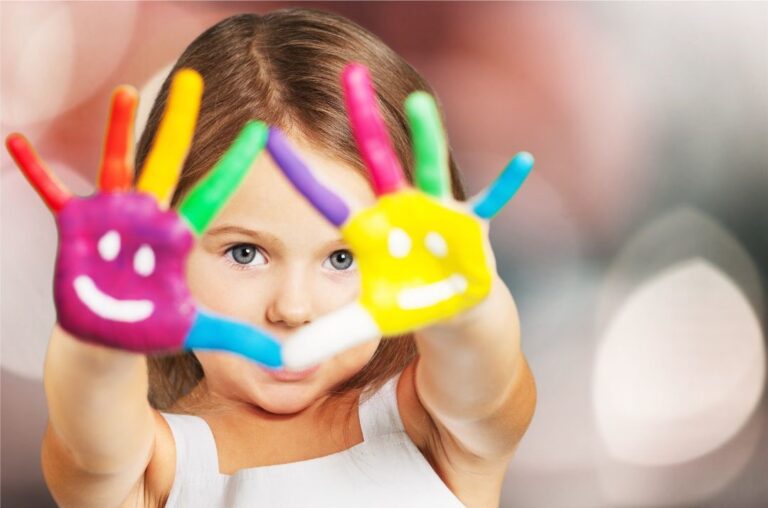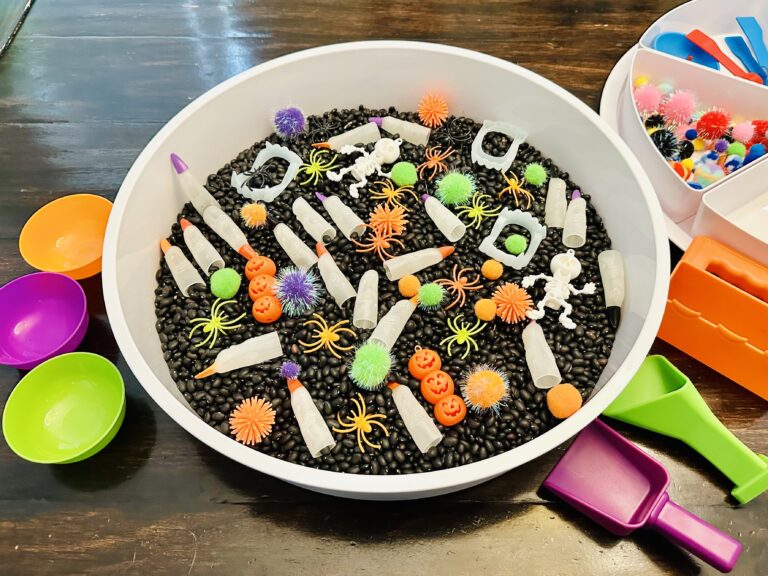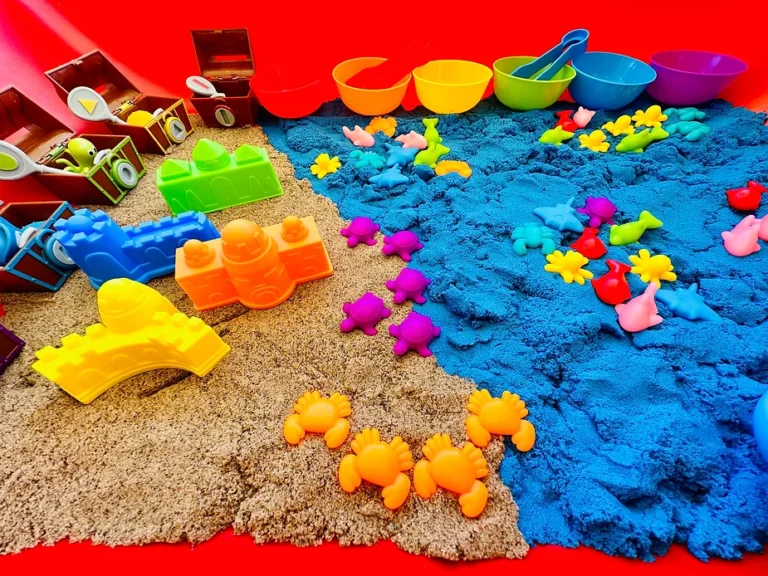Ultimate Toy Guide: 20 Best Board Games for Preschoolers

This post may contain affiliate links and I could earn a small commission at no cost to you. However, I will never recommend anything that I do not believe in or use myself. You can read more about my disclosure policy here.
Remember those cozy family game nights when you were a kid? The laughter, the excitement, the friendly competition (and maybe a few tears if you didn’t win)? Well, it’s time to bring that magic into your home with your little ones!
Board games are not just a fantastic way to keep preschoolers entertained—they’re also great for boosting their cognitive skills, teaching them about teamwork, and helping them learn to follow rules.
Whether you’re looking for games that can make a rainy day fly by, or you need a fun activity for a playdate, we’ve got you covered. Our list of the 20 Best Board Games for Preschoolers is packed with colorful, engaging, and educational options that will have your kiddos giggling with joy.
And if your kiddos are a bit older, in the 5 to 8 age range, don’t worry—we’ve got you covered too. Check out our list of best board games for kids.
So, gather around the table, grab some snacks, and let’s dive into the world of board games perfect for your tiny tots!
Related: Ultimate Toy Guide: 30 Best Board Games for Kids
What Age Can Kids Start Playing Board Games?
Preschoolers, typically around 3 years of age, are at a developmental stage where they are ready to start exploring the world of board games.
Around this age, children begin to grasp basic concepts such as taking turns, following simple rules, and engaging in imaginative play.
This makes it an ideal time to introduce them to board games that are designed to be age-appropriate and easy to understand.
Benefits of Board Games for Preschoolers
Cognitive Development: Board games for preschoolers often involve counting, matching, and simple decision-making. These activities stimulate cognitive skills like memory, attention, and problem-solving, laying a foundation for future academic success.
Social Skills: Playing board games teaches children to take turns, share, and interact with peers. They learn valuable lessons in patience, empathy, and communication as they engage in friendly competition and collaborative play.
Fine Motor Skills: Many board games require players to manipulate small game pieces, which helps improve fine motor skills and hand-eye coordination in preschoolers.
Language Development: As children engage in gameplay, they practice verbal communication by expressing their thoughts, following instructions, and engaging in conversations with fellow players.
Emotional Growth: Winning and losing are integral parts of board games. By experiencing these outcomes, children learn to manage their emotions, handle disappointment, and celebrate successes with grace.
Creativity and Imagination: Certain board games encourage imaginative thinking, allowing children to explore fantastical scenarios and storylines. This helps nurture their creative and imaginative capabilities.
Related: Ultimate Toy Guide: 35 Best Toys for Preschool Aged Children
20 Best Board Games for Preschoolers
Now that you’re ready to spark some fun and learning, let’s dive into our top picks for the best board games that will delight your preschoolers and make family game nights a blast!

1. Candy Land
Candy Land remains a timeless choice for introducing young children to the world of board games. With its vibrant colors and straightforward gameplay, this game is perfect for preschoolers. As they navigate the winding path of colorful spaces, children improve their color recognition, basic counting, and turn-taking abilities, all while immersing themselves in a delightful and whimsical journey.

2. Chutes and Ladders
Chutes and Ladders continues to captivate children with its captivating concept. By climbing ladders and sliding down chutes, kids learn about cause and effect while honing their counting skills. This classic game teaches patience, sportsmanship, and the concept that both luck and strategy play roles in the outcome.

3. Zingo!
Zingo! offers a delightful twist on traditional Bingo. By matching images and words on their cards with tiles drawn from the Zingo Zinger, children enhance their early literacy and language skills. This fast-paced game stimulates quick thinking, visual perception, and vocabulary expansion in an exciting and immersive format.

4. Charades for Kids
Charades for Kids is a delightful game that encourages preschoolers to use their imagination and communication skills. Players take turns acting out animals, objects, or actions without using words, while others guess what they’re miming. This game promotes creativity, language development, and social interaction in a lively and engaging way.

5. Hungry Hungry Hippos
Hungry Hungry Hippos delivers fast-paced excitement as children race to collect marbles with their colorful hippos. This game promotes hand-eye coordination and a competitive spirit, providing an energetic and engaging experience for active young players.

6. Spark Matching Cards
Spark Matching Cards is a memory and matching game that encourages children to find pairs of captivating images. By improving memory, concentration, and visual recognition, this game offers hours of entertaining engagement while boosting cognitive skills.

7. The Floor is Lava
The Floor is Lava transforms the living room into a dynamic playground where players leap from cushion to cushion to avoid the “lava.” This active game encourages gross motor skills, imaginative play, and cooperative problem-solving, creating an adventurous experience for young explorers.

8. Pop the Pig
Pop the Pig combines color recognition and counting as players feed the pig burgers until its belly pops! This game makes math practice enjoyable for children, teaching basic addition and subtraction skills in a lighthearted and entertaining way.

9. Animal Upon Animal
Animal Upon Animal invites children to stack wooden animals, testing their fine motor skills and patience. This game enhances hand-eye coordination, spatial awareness, and strategic thinking while providing a whimsical and tactile adventure.

10. Shark Bite
Shark Bite introduces young players to simple strategy and risk assessment as they fish for treasures from a shark’s mouth. This game promotes critical thinking, turn-taking, and anticipation, infusing an element of suspense and excitement.

11. Sequence for Kids
Sequence for Kids adapts the popular game Sequence for younger players. Children match animal cards to their corresponding pictures on the game board, aiming to create sequences of four in a row. This game enhances pattern recognition, strategic thinking, and teamwork.

12. Don’t Break the Ice
Don’t Break the Ice challenges players to tap out ice blocks without letting the penguin fall through. This game improves fine motor skills, patience, and coordination while providing an enjoyable and engaging experience for preschoolers.

13. Spot It!
Spot It! Classic card game challenges children to find matching symbols on cards, enhancing their visual perception and cognitive agility. This game sharpens observation skills and reflexes while providing a captivating and entertaining experience.

14. Feed the Woozle
Feed the Woozle takes a cooperative approach, encouraging players to work together to feed a hungry monster. This game promotes teamwork, gross motor skills, and basic counting, fostering a sense of unity and shared accomplishment.

15. The Sneaky, Snacky Squirrel Game
The Sneaky, Snacky Squirrel Game features adorable gameplay that also enhances fine motor skills. Using squirrel-shaped tweezers, children pick up colorful acorns and place them into tree stumps. This game sharpens hand-eye coordination, reinforces color recognition, and boosts concentration—all while providing a delightful and engaging experience.

16. Hi Ho! Cherry-O
Hi Ho! Cherry-O is a delightful game that teaches children basic math skills as they pick and count cherries from their trees. This game enhances counting, addition, and subtraction abilities, all while providing an enjoyable fruity adventure.

17. Guess Who?
Guess Who? is an outstanding game that introduces children to deductive reasoning and critical thinking. Through yes-or-no questions, players work to unveil their opponent’s mystery character. This game nurtures logical thinking, attentive listening, and the ability to draw conclusions from limited information.

18. Connect 4
Connect 4 introduces children to strategic thinking and pattern recognition. Players take turns dropping colorful discs into the grid with the goal of getting four of their own discs in a row. This game enhances critical thinking, planning, and competitive spirit, providing an engaging and intellectually stimulating experience.

19. Yeti in My Spaghetti
Yeti in My Spaghetti is a game of careful maneuvering as players take turns removing spaghetti strands without letting the yeti fall into the bowl. This game enhances fine motor skills, hand-eye coordination, and strategic thinking while providing a whimsical and entertaining experience.

20. Giggle Wiggle
Giggle Wiggle challenges children to race to the top of a twisting caterpillar, enhancing hand-eye coordination and fine motor skills. This game adds an element of silliness and laughter to playtime, creating a joyful and lively atmosphere.
Final Thoughts
Board games for preschoolers offer a plethora of developmental benefits that contribute to the holistic growth of children.
By introducing age-appropriate board games into their lives, parents and caregivers provide a valuable tool for nurturing well-rounded and capable individuals, setting the stage for a lifetime of learning and fun.
So, gather around the table, roll the dice, and embark on a journey of growth and discovery with your child through the magical world of board games.
Recommended
- 10 Best Games for Family Game Night with Young Children
- 16 Great Games For The Best Family Game Night Ever!
- 10 of the Best Bluey Games to Play at Home!
- Ultimate Toy Guide: 30 Best Board Games for Kids
- Ultimate Toy Guide: 35 Best Toys for Preschool Aged Children






